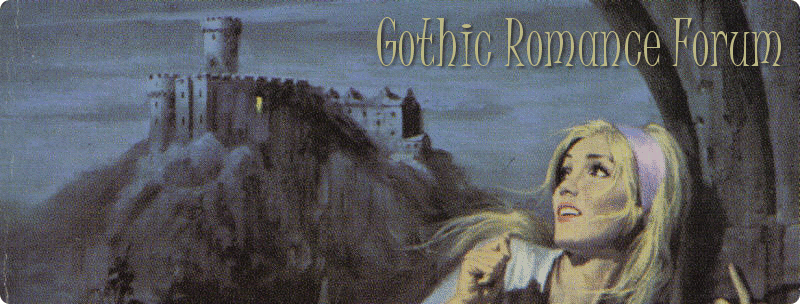08-18-2011, 01:42 AM
(08-17-2011, 10:41 PM)Cherchezlafemme Wrote: I don't believe the readership changed all that much. Yes the "bodice-ripper" dominated the market during the 1970s and 1980s, but many gothic romance authors were still going strong and a number of new authors entered the genre (with many careers lasting into the 90s), and Harlequin category romances of the 1970s and 1980s featured virginal heroines paired with brooding alpha men too! Also, by the end of gothic romance's strong run, many authors began to include paranormal elements to the traditional format--and look, now you can't go anywhere without running into vampires, witches, ghosts, or werewolves. I will also add that today's romantic suspense genre shows its roots in the contemporary-set gothic romances of authors like Phyllis A. Whitney and Elsie Lee, and another genre that owes a debt to gothic romance is the cozy mystery genre--so the gothic romance genre still exists, it's just packaged differently.
I agree with your stance that breaking too many tropes and/or elements which make a gothic romance "gothic" pushes the book out of the genre, and that quality matters most. However, there is something to be said for why many readers--even those who cut their teeth on gothics as children or teenagers--wrongly consider the genre a product of pre-feminist movement America, and why gothic romance tropes are merely considered flat-out cliches. But I will say that in my WIP, I'm working from the inside out...playing with the conventions yet at the same time, trying to see where I should stop before I step over the ledge of "cliche." It's fun and challenging, and I hope it turns out great.
Agreed. But everything is relevant to the reader. A reader just discovering the gothic genre will not have encountered some of those clichés before, and they might seem fresh to him. Ultimately, even the term "genre" must refer to some defining universal characteristic that everything within that bracket shares. In the gothic bracket is a certain atmosphere embodied in a creepy old house and possibly an angst-ridden love story to go along with it. As with any genre, extraneous optional elements not necessarily contained within the brackets will eventually redefine the genre as they gain dominance, at which point -- as you say -- the genre itself fractures and morphs into something else. This creates the usual opposed camps of purists vs. permissivists and luckily there is something out there for everybody.
I think the main point on which we agree absolutely is that we look for quality above all. A novel can contain all the archetypal gothic trappings that I look for -- a creepy old house, fog, inclement weather, a fey heroine, a host of brooding suspects, curses, hexes, execrations, ancestral oaks, vapours and delirium -- but if it's poorly executed, then it's on to something else. And conversely, if a "gothic" lies outside of the orthodox boundaries and the author approaches the theme from an entirely new angle, I can be most pleasantly surprised provided the writer knows how to write.



